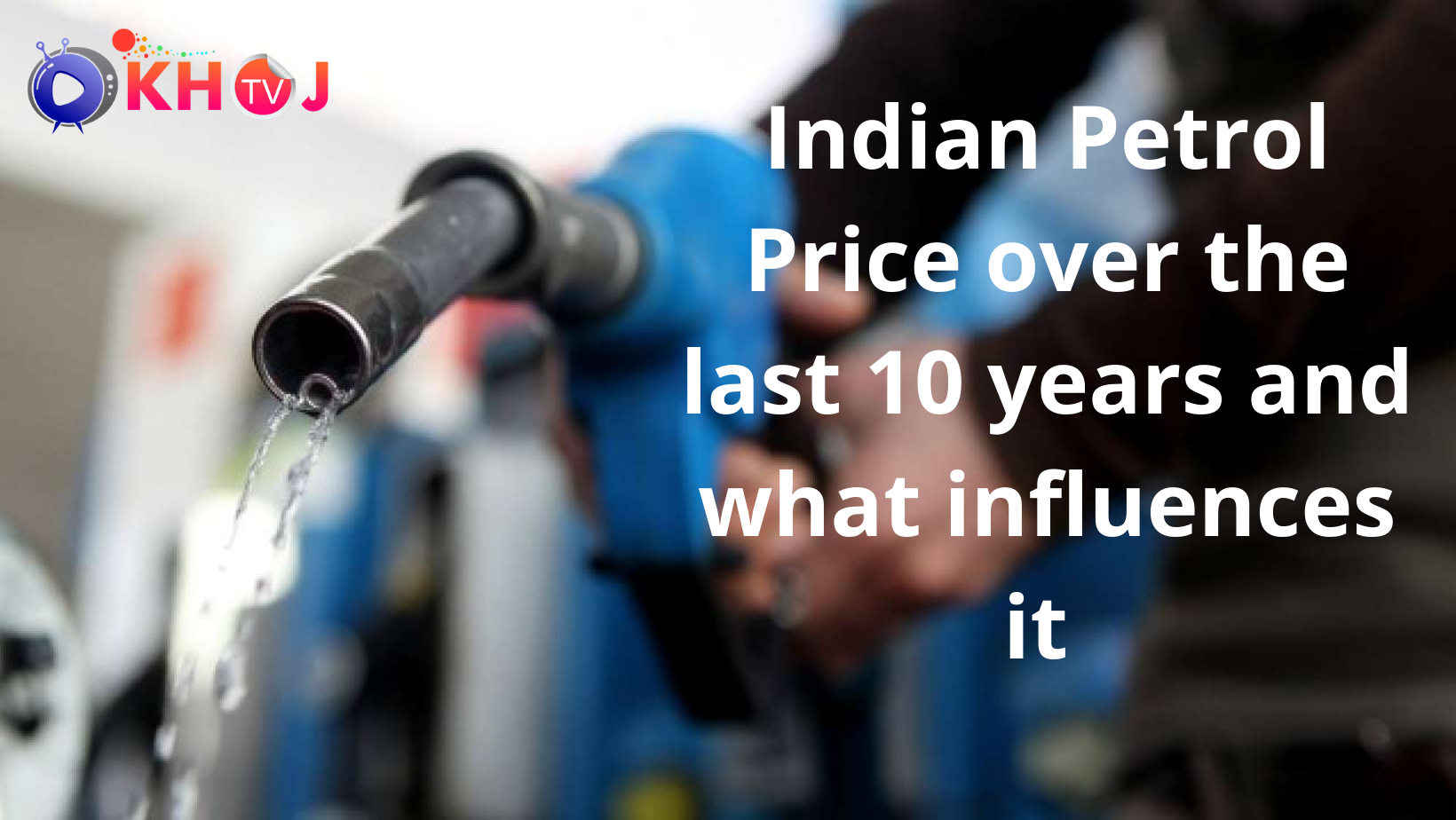If you own a vehicle or watch the news, you know very well how petrol prices are rising day by day in India. As per the data on the Indian Oil Corporations website, right now petrol price stands at Rs 100.47 in the financial capital Mumbai. If we go back to 10 years from now the petrol price (2010)was Rs 52.2. It means over the last 10 years petrol price has been increasing at a significant rate.
Generally, fuel rates are updated every day at 6 AM. This is called the dynamic fuel price method. It was started in June 2017. Initially, the government used to determine the retail price but later the price of petrol was deregulated in 2010. In simple terms, the Indian government has allowed oil marketing companies to determine the price of petrol. Based on the currency exchange rate and fluctuations in international oil prices. Along with this, there are several factors that influence the price of petrol. All these factors made the petrol price rise exponentially over the last 10 years.
The increasing rate in the petrol price has impacted many citizens in the country. Mainly it impacted the people who own a personal vehicle. It further caused the sales drop in the automotive industry. Several businesses spread across several sectors have been impacted by this rise in the petrol price. Also, it impacted people who do not own vehicles as they have to pay more towards availing public transport. Let’s discuss in detail how the increment in the petrol price over the last 10 years has impacted people and the economy.
Petrol price over the last 10 years
History of petrol price over the last ten years. In 2010 the petrol price was 52.2 in Mumbai. And following years petrol prices in Mumbai are as follows. In 2011, the petrol price was 68.33, 2012-78.57, 2013-71.13, 2014-80.11, 2015-74.12, 2016-66.12, 2017-76.55, 2018-86.24, 2019-78.48 and in 2020 the petrol price stands at 75.57.
If you observe carefully you can notice that even with the inflation the price has increased significantly. Oil Marketing companies revise rates of petrol daily based on the average price of benchmark fuel in the international market. This means an increase in global fuel prices will result in a price hike in the domestic market.
Another reason behind the petrol price increment over the last 10 years can be the taxes imposed by both the center and the state. Also, these petrol prices differ from state to state based on the VAT and transportation. VAT means value-added tax and transportation charges. Apart from this, Indian government overall imposed tax on petrol price make up to
percent of the retail selling price of petrol.
Other factors influencing the petrol price over the last 10 years
Price charged to dealers and commission for dealers
Several reasons impacted the petrol price over the last years from 2010 to 2021. One of the major reasons can be the price charged and commission for dealers. The crude oil is mainly acquired and distributed by Oil Marketing companies. And what these companies charge to their dealers will impact the price of fossil fuels. It can be based on several factors like the freight charges, the refining cost, and so on.
Along with this, the Oil Marketing companies pay a commission to the fuel dealers. And the petrol pump owners include their earnings, cost, and profit in this commission.
Demand for fuel:
Most Indian homes consist of at least one vehicle in their home. In addition to this, there is a continuous increment in the production of two-wheelers and four-wheelers to meet the market demand. All this resulted in the high demand for both petrol and diesel in the Indian market for the last 10 years. As the oil refinery companies in India need to get crude oil from the international market to meet the ongoing demand. So it’s hard to meet the demand with an equal supply.
Based on the laws of economics, whenever the demand is more and supply is less, Which inevitably increases the price of both fuel and petrol. Along with this, it also varies based on the consumption ratio of refineries. Because the crude oil imported to India goes to the refineries for processing further.
If refineries are less then the overall quantity of the petrol, which will be available for sale also be lower. This means that the supply will be lower which in turn makes the price of petrol higher.
USD and INR valuation difference
One of the reasons why the petrol price has increased over the last ten years can be the valuation difference of the Indian rupee against the American dollar. This means the INR value against the USD is also a strong influencing factor. In simple terms, the cost of purchasing crude oil will be higher.
Conclusion
The average petrol price in India is 100.47 in Mumbai. Which is the highest price compared to the prices recorded in the neighboring countries and countries with comparable economies. Indian petrol price has been increasing over the last 10 years significantly. Oil marketing companies revise the petrol rates every day at 6 AM. With the benchmark of the international prices and foreign stock exchange.







GIPHY App Key not set. Please check settings